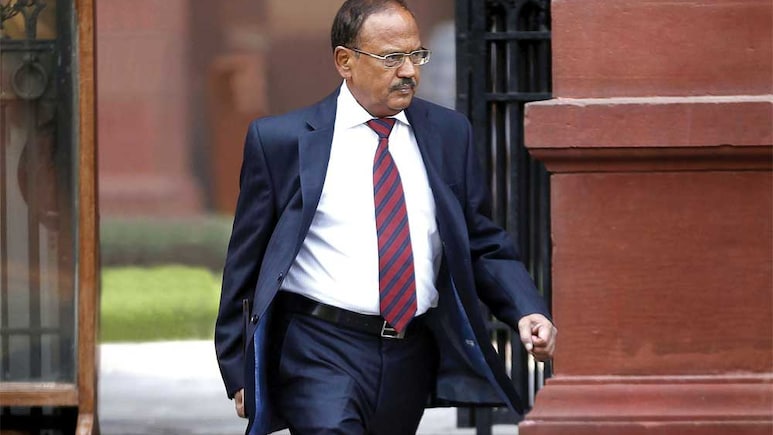
Prime Minister Narendra Modi arrived in China on Saturday to attend the Shanghai Cooperation Organisation (SCO) summit. He met Chinese President Xi Jinping to discuss strengthening bilateral ties, amid rising tensions with the United States, which has imposed steep tariffs on Indian goods.
The visit recalls when India's 'Super Spy' Ajit Doval took a firm stand on the country's sovereignty five years ago.
The Walkout That Made Headlines
It was September 2020, the height of the COVID-19 pandemic. Diplomacy had shifted largely online, and SCO National Security Advisors were meeting virtually.
During the session, Pakistan's representative, Dr Moeed Yusuf, displayed a newly issued political map. On it, Jammu and Kashmir and Junagadh, territories integral to India, were claimed by Pakistan. This was in clear violation of SCO rules, which forbid bringing bilateral disputes into multilateral forums.
India was quick to object. Despite repeated attempts by Russia, which chaired the meeting, to get Pakistan to remove the map, the warnings went unheeded.
At that moment, Ajit Doval, India's National Security Advisor, walked out.
It was a message saying India would not allow its territorial integrity to be questioned.
An informed source described the move as "a blatant violation of the SCO Charter and against all established norms of safeguarding the sovereignty and territorial integrity of SCO Member States." Russia later confirmed it did not support Pakistan's provocative action, and Nikolai Patrushev, Secretary of the Russian National Security Council, praised Ajit Doval for walking out.
The Spy Behind The Curtain
Ajit Doval has a track record that reads like a spy thriller. Between 1971 and 1978, the 'Super Spy' went undercover in Pakistan, posing as a Muslim cleric to gather intelligence during the 1971 India-Pakistan war. He provided information on Pakistan's military plans that helped India's strategic decision-making.
Back home, Ajit Doval helped negotiate peace during domestic insurgencies, including talks with Mizo rebel leaders that led to the 1986 Mizo Peace Accord. He was also part of Operation Black Thunder in 1988, infiltrating the Golden Temple complex to gather intelligence on militants.
In 1999, he helped negotiate during the Kandahar hijacking, securing the release of Indian hostages. In 2014, he coordinated the return of 46 Indian nurses held by ISIS in Iraq. And in 2016, he oversaw planning for surgical strikes against terrorist launchpads across the Line of Control in Pakistan-occupied Kashmir.
Track Latest News Live on NDTV.com and get news updates from India and around the world

